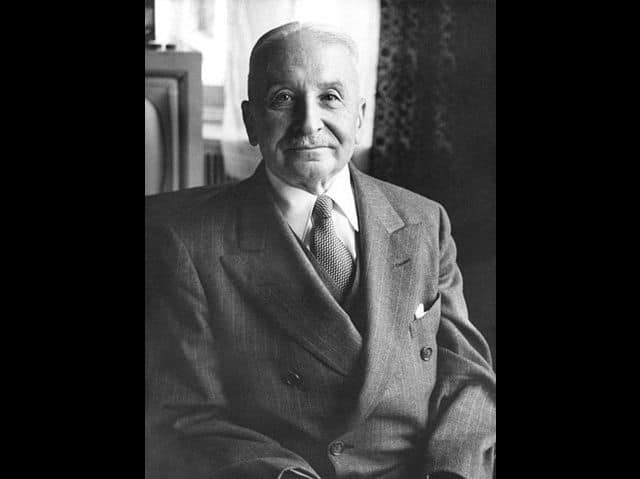
Ludwig von Mises, the creator of praxeology
Praxeology is a discipline that analyzes people's actions based on the formal scope of the description of the action itself. In this way, it examines the logical structure that acts a priori .
The means, not the ends
Every time a human being carries out an action, he seeks to achieve a certain end . This process has logical implications : the individual, among the scarce means at his disposal, selects one or some that he thinks will allow him to achieve the goal.
The interest of praxeology is not the objectives of the action, but the action itself , regardless of the circumstances. This means that it points to the means and not the ends.
The focus of praxeology is on the individual who acts . From this observation, it generates principles and axioms that allow it to develop an analysis of the action process.
Praxeology is associated with the Austrian School , a movement of economic thought that is based on methodological individualism . For the referents of the Austrian School , social and economic phenomena are the result of the actions and motivations of the subjects.
Ludwig von Mises
Ludwig von Mises was the first to apply praxeology, convinced that people perform conscious actions to achieve selected goals. Human behavior has a purpose , which is expected to be achieved by appealing to certain means. That purpose, in turn, is valuable for human beings. By extension, if consumers act according to their values, the sum of the value scales of all individuals would be equivalent to the supply and demand of the economy .
Mises was born in the former Austro-Hungarian Empire in 1881 and dedicated himself to economics, philosophy, history and writing. In addition to his influence on the aforementioned Austrian School, he also influenced the libertarian movement , which defends individual freedom, the granting of resources through the economy and the right to private property. He expressed himself against the power and participation of the government in the economy, since, in his opinion, they caused results different from those expected, harmful to the people.
As part of its approach, every hypothesis that is developed about the action of human beings has certain issues linked to it, such as wealth, value, the terms of the transaction, costs, and even the subjective assessment made by the individual with their own scale. . Therefore, it is possible to use praxeology in the social sciences because economics not only focuses on things that can be measured accurately, but also on more complex issues that relate to behavior and not necessarily material elements.
Etymology of the term
It is always beneficial to analyze the etymology of terms, since it provides us with elements to understand them in greater depth, particularly if they are not widely used in everyday speech. In the case of praxeology, we have two well-defined components:

According to Mises, economics not only measures exact things, but also complex aspects of our behavior.
* praxis : this is a word originating from Greek that translates as "transaction, commerce, action." For its part, it is made up of the elements prassein (a verb that means "to carry out, do" and that is related to the Indo-European root *per- ) and the suffix -sis (which indicates action and is found in emphasis, dose and crisis , among other terms);
*-logy : This suffix denotes “study of,” as with words like methodology and geology . Its components, in turn, are logos (which means "word, treatise ", and we find it in the decalogue, prologue and catalogue , for example, and is linked to the Indo-European root *leg- ) and the suffix -ía (which denotes quality and is present in the terms geology, trigonometry, pathology and calligraphy , among others).
